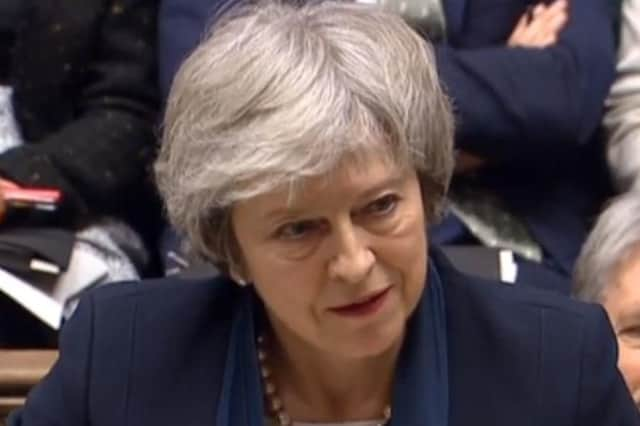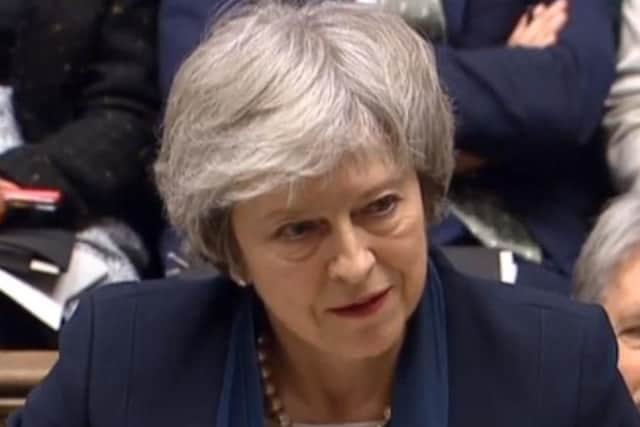Theresa May loses her Brexit vote, being defeated 432 to 202


The PM suffered a humiliating defeat during the ‘meaningful vote’ at the House of Commons on her Brexit proposal.
A total of 432 voted against her compared to 202 in favour.
Earlier Mrs May had made a last-ditch plea to MPs to back her EU withdrawal plan, telling them: ‘I believe we have a duty to deliver on the democratic decision of the British people, and to do so in a way that brings our country together’.


Advertisement
Hide AdAdvertisement
Hide AdRejection of Mrs May's Withdrawal Agreement by MPs now gives her until January 21 to set out her Plan B - expected to involve going back to Brussels to seek further concessions.
And it is also likely to trigger a bid to force a general election by Jeremy Corbyn, who has said he will table a motion of no-confidence in the Government "soon" after it is defeated on its central policy platform.
Moments before the crunch vote, Mrs May told MPs: ‘Parliament gave the people a choice, we set the clock ticking on our departure and tonight we will determine whether we move forward with a Withdrawal Agreement that honours the vote and sets us on course for a better future.
‘The responsibility of each and every one of us at this moment is profound, for this is a historic decision that will set the future of our country for generations.’
Advertisement
Hide AdAdvertisement
Hide AdBut the Labour leader called on MPs to vote down the agreement, saying: ‘This deal is bad for our economy, a bad deal for our democracy, and a bad deal for this country.’
A vote on an amendment on the back stop was crushingly defeated, with 600 voting against the plan compared to just 24 in favour of it.
Mr Corbyn could use a point of order in the immediate wake of Tuesday's vote to trigger a no-confidence debate as early as Wednesday.
And Mrs May is expected to deliver her immediate response to the reverse in a statement to the Commons moments after her anticipated drubbing.
Advertisement
Hide AdAdvertisement
Hide AdAttorney general Geoffrey Cox appeared to indicate the PM will resist pressure to tear up her plan or to seek cross-party consensus on a new approach.
He told MPs that in the event of a government defeat the agreement would have to return to the Commons later ‘in much the same form with much the same content’.
Noisy crowds of pro- and anti-Brexit protesters in Parliament Square could be heard inside the Palace of Westminster as MPs prepared to vote at 7pm, in a process expected to culminate in a final result around 7.30pm.
MPs were due to vote first on a series of four amendments chosen by Speaker John Bercow.
Advertisement
Hide AdAdvertisement
Hide AdBut Mr Corbyn, Scottish National Party leader Ian Blackford and Tory backbencher Sir Edward Leigh opted not to move their amendments, leaving only one division on a proposal from Conservative MP John Baron for the UK to take unilateral powers to end controversial "backstop" arrangements.
Heavily pregnant Labour MP Tulip Siddiq, who postponed her planned Caesarean in order to vote, attended the Commons in a wheelchair.
By the time Mrs May concluded the debate with a passionate plea to MPs to deliver the Brexit demanded by voters, her hopes of victory appeared vanishingly small.
Assurances over the ‘backstop’ received from the EU on Monday appear to have failed to win over significant numbers of the deal's critics among the Tories and their DUP allies.
While some MPs - including former Labour minister Frank Field - declared their intention to back the PM's deal, normally loyal Tories like Sir Hugo Swire said they would not do so.